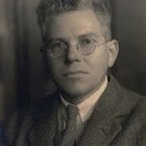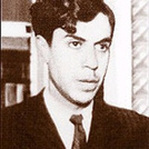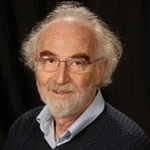 Vuyani Mlinde, bass-baritone Vuyani Mlinde, bass-baritone The latest singer to perform as part of the acclaimed Rosenblatt Recitals series was bass-baritone Vuyani Mlinde. The South African won a full scholarship to the Royal Academy of Music on 2004, and has been going from strength to strength ever since. He has performed roles such as Leporello and Commendatore in Don Giovanni, Sarastro in Die Zauberflöte, and Seneca inL'incoronazione di Poppea. A full biography can be found here. The recital commenced with three Mozart arias. The first, "Se vuol ballare" from Le Nozze di Figaro, was a nice, gentle way to start the evening, leading smoothly to the next offering: "Madamina il catalogo è questo" from Don Giovanni. The last Mozart piece, the concert aria "Così dunque tradisci", was the most impressive in this first section, with Mlinde keeping an even tone throughout the piece, which ranged from D2 to F4. Mozart's calling card in his virtuoso arias is the ascending one and a half octave leap, this time from B2 to F4, which Mlinde navigated with ease. While the Mozart was performed admirably, it was with the Tchaikovsky that Mlinde really came alive. The passion of the Russian composer's work more suited the strong, powerful quality of Mlinde's voice. The second piece, "Gospod’ moj, esli gresen ja", starts with a phrase marked "a piena voce molto espr.", and this was exactly how Mlinde interpreted it. The first phrase, rising and falling like a wave, was imbued with fierce emotion. Towards the end of the aria, his F4 was so full and rounded, he sounded more like a full baritone than a bass-baritone, while the resonance on his unaccompanied F2 was strong, rich and dark.
The next piece was the first of three Verdi opera arias, and for me was the highlight of the evening. Mlinde himself states that Verdi is his "favourite composer", and his performance of Banquo's aria from Macbeth shows just how fully he connects with that composers work. The ominous tone of Mlinde's voice is perfect in first phrases, where Banquo tells his son about the murder of Duncan. At the conclusion of the aria, Mlinde's fortissimo E4 on the phrase "e di terror" rang out through the hall. There was more Verdi to come after the interval, as Mlinde sang Silva's aria from Ernani. There series of three songs by different composers which followed allowed Mlinde to explore a more intimate emotional connection with the audience. Respighi's "Nebbie" was composed during a period of depression, and the music reflects this quality with a repetitious chord rhythm, and long, dark phrases in the vocal line. Mlinde's rich, sombre voice was a perfect vehicle for the melancholic song. The last piece in this set was Gastaldon's "Musica Prohibita". Mlinde was at his most ardent in this last song, as his interpretation of this Neapolitan ballad encompassed both the longing for love, and the seductive qualities of the young, passionate lover. The final aria on the program, "Mentre gonfiarsi l'anima", was again from Verdi, this time from his operaAttila. Mlinde was full of awe and terror in the first half of the aria, his interpretation of the phrase "Di flagellar...il suol!" was particularly moving. The second half of the aria saw Attila back to his normal self, full of fire and rage. Mlinde powered through the lines, ending on a spectacular F4. His encore was the drinking song Im tiefen Keller, performed in English with a translation by John Oxenford. After showcasing his excellent high register, this song focused on his beautiful lower register, with some excellent tone displayed below the stave. It also gave us a chance to enjoy his wonderful sense of humour! Vuyani Mlinde will be performing Beethoven's Symphony No. 9 with the London Symphony Orchestra on tour, and also, in November 2011, the role of Sarastro in Die Zauberflöte for Opera Oviedo. The next season of Rosenblatt Recitalists can be seen here. Please also check out this video about Mlinde and his music.
0 Comments
|
Categories
All
Archives
September 2014
|
MOST VIEWED POSTS
© James Edward Hughes 2013
 RSS Feed
RSS Feed





